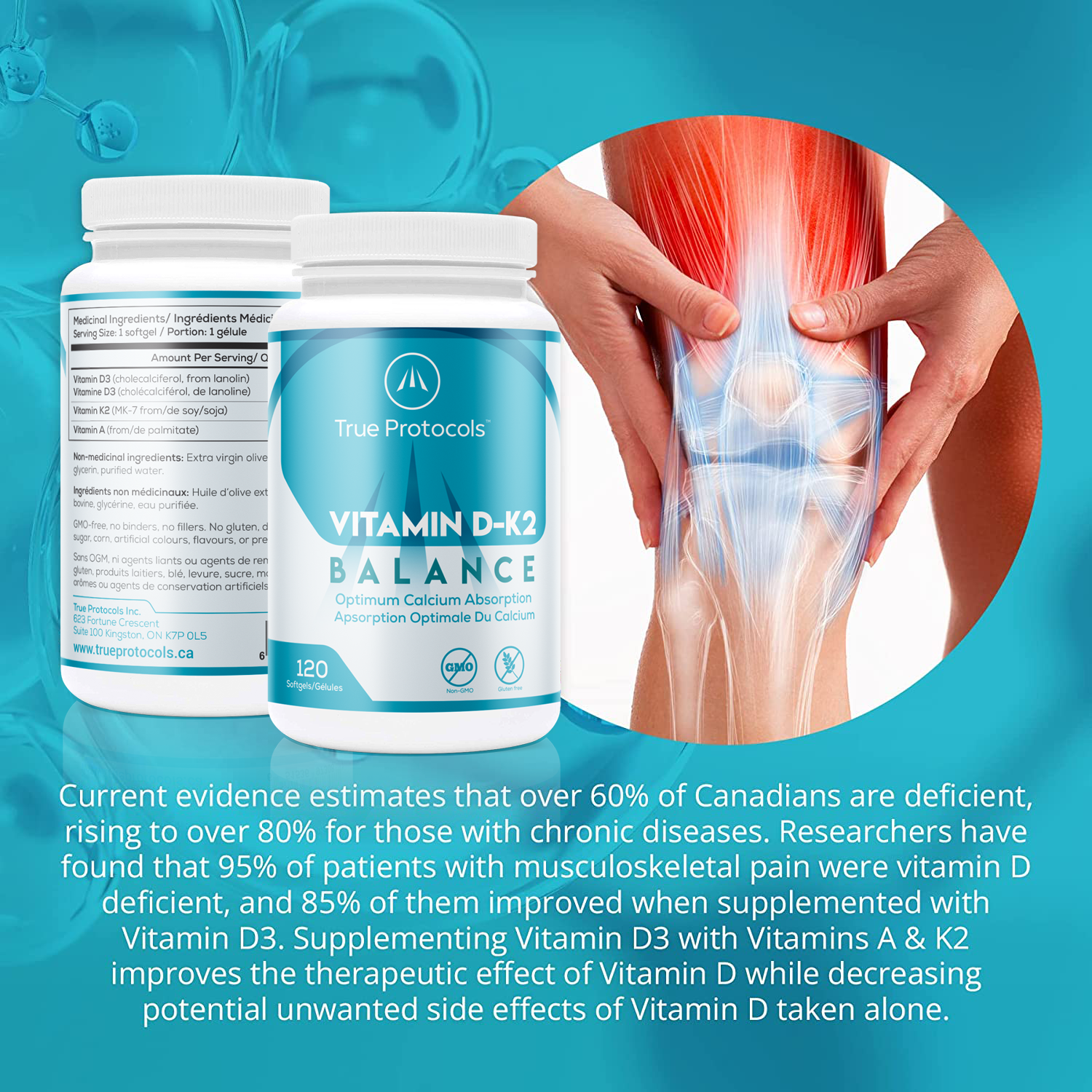We are often told we need to drink more milk to build healthy bones as it supplies us with the calcium that makes them so strong. The truth is, we aren’t lacking calcium nearly as much or as often as we once thought.
The problem lies not in a shortage of calcium, but in our lack of other nutrients like vitamin K2 that helps the body direct calcium from our blood into our bones. This unfortunate misunderstanding and lack of key additional fat soluble vitamins D3 and A have led to an unnecessary rise in our most common modern health afflictions.
Vitamin D-K2 Balance

Vitamin A plays a key role in muscle and bone health by excreting excess calcium which helps to dissolve plaques in blood vessels and soft tissues. Vitamin A also plays a key role in proper genetic expression, immune function, skin health and night vision.

Vitamin D is a hormone best known for its role in helping to absorb calcium from the digestive system to promote bone formation. Vitamin D has multiple actions within the body, including in the regulation of genes, balancing immune function and supporting mood.

Vitamin K2 regulates osteocalcin, a protein important for bone mineralization. Vitamin K2 helps to prevent the calcification of arteries and muscles, making it critical for both bone and cardiovascular health.
Vitamin D-K2 Balance contains the key vitamins necessary to regulate calcium absorption, function, and elimination. Think of vitamins D, K2, and A as your calcium control team, with optimal performance occurring when you have adequate levels of all 3 vitamins present.
Vitamin D helps to absorb calcium, vitamin K2 directs it to the bones and helps to clean up excess calcium, while vitamin A helps to excrete calcium through your urine.
When calcium is not being absorbed into our bones properly, and instead stored in our soft tissue, our body starts to behave as if it is short on calcium, which results in the release of calcium from our bones creating weakness, frailty and overall disfunction.
In order to properly direct and manage this vital nutrient, we need to add some additional sidekicks to keep things working properly. With estimates of its deficiency ranging from 60-90% of the population, vitamin D is the key player responsible for the absorption of calcium from the gut. We need vitamin D not just for calcium optimization, but for regulating genes, balancing immune function and supporting our mood.
Vitamin A is our other calcium ally that we rely on to excrete excess calcium that has accumulated as plaques in our blood vessels and soft tissues. These 3 compounds have a vital synergistic effect that allows the body to optimally allocate calcium stores across the different body systems.

